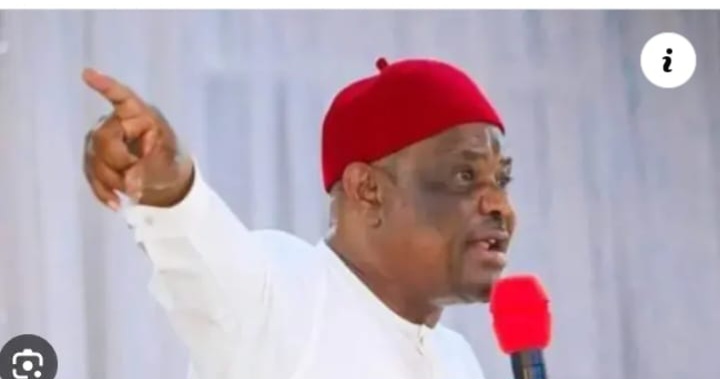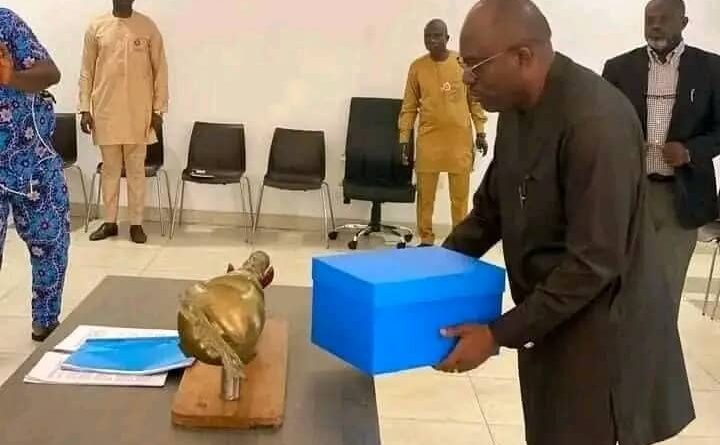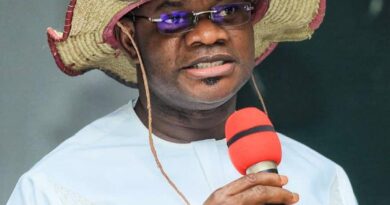Rivers’ Crisis: CACOL Calls On Warring Factions To Embrace Peace
Against the backdrop of the Federal High Court in Abuja ruling which barred the Central Bank of Nigeria from disbursing further monthly allocations to the Rivers State Government, citing alleged constitutional violations by Governor Siminalayi Fubara, the Centre for Anti-Corruption and Open Leadership, CACOL, has warned the dramatis personae involved in the power play not to allow the state affairs degenerate beyond the current situation of things.
In a release issued by CACOL and signed by Tola Oresanwo, the anti-corruption organization’s Director, Administration and Programmes on behalf of its Chairman, Mr. Debo Adeniran, he stated “it should be noted that in her ruling on Wednesday, Justice Joyce Abdulmalik found that Governor Fubara’s presentation of the 2024 budget to a four-member House of Assembly breached constitutional protocol.

“Justice Abdulmalik highlighted that since January, Rivers State has received and spent allocations based on an “illegitimate” budget, describing this as a “constitutional aberration.”
“We at CACOL have observed the unfolding events in Rivers state for some months now and we would like to posit that none of the sides to the imbroglio is following democratic ethos.
“In as much as we agree that it is not the business of the Governor to determine what form the quorum in the state Assembly but he need not present the state budget to an Assembly that is less than one quarter of the total members. That is obviously against democratic principles, rules and ethos.
” If the Governor wants to claim that those other legislators have defected to other political parties, he has to prove it because we can’t rely on social media hype as evidence of defection. He has to come up with their membership registration forms or authentic membership cards of the political parties they joined. Mere dramatization of defection like holding the flag of another party is not an evidence of cross carpeting.
“With the little information that we have, it is certain that the Governor has allowed himself to be misguided into presenting the state budget to less than one quarter of the members of the House of Assembly which is not in alignment with democratic principles and ethos. Majority counts in every democracy, minority may have their say, but the majority will always have their way. Wherever a minority is having their way, it is autocratic and should not be allowed to creep in to our democracy, and if it has crept in, it should not be allowed to fester.
“It should not be allowed to be the precedents other states would be following. It should be noted that we are not taking sides in the power play in the state as a former Governor cannot be said to be acting on behalf of the state governor.
“But if he is more popular than the sitting Governor, it means the sitting Governor has lost credibility among his own people, since he cannot garner the support of the majority of the House of Assembly members who are the representatives of the people the Governor is governing.
“We would like to use this medium to call on the parties to the political impasse in the state to sheath their swords as their actions and inactions would have grave consequences on the welfare of the people of the state.”
The following would be the potential impacts of the court ruling on the state:
Financial Strain: Halting allocations can lead to a financial crisis for Rivers State, affecting its ability to fund public services, salaries, and infrastructure projects.
Public Services: Residents may experience reduced public services, including health care, education, and security, due to a lack of funding.
Political Ramifications: This ruling could escalate political tensions in the region, with potential protests or calls by the citizens for accountability from the state government.
Economic Effects: The broader economy of Rivers State could suffer, particularly if investors perceive the state as unstable due to financial uncertainty.
Future Legal Precedents: The case may set a precedent for how similar disputes are handled in the future, affecting other states’ relationships with the CBN.




